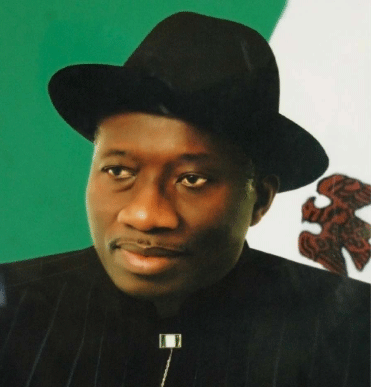Initial enthusiasm on the national conference offering Nigerians a window of hope on a new constitution may be misplaced, going by uncertain developments that may work against decisions of the confab being subjected to a referendum, Editor, Politics/Features, EMEKA ALEX DURU, writes
Goodluck Jonathan
It was not for nothing that when President Goodluck Jonathan mooted the idea of a national conference in his October 1 broadcast last year, the initiative was greeted with mixed feelings.
The president had remarkably recalled that, for many years, Nigerians had craved to talk on how the different components of the country could co-exist on a mutually-acceptable term.
The desire, he stated, was borne out of the realisation that the 1914 amalgamation of the Northern and Southern Protectorates to form Nigeria did not have the input of the people, hence the mutual distrust that has often threatened the nation’s unity.
Many, thus, saw in the announcement possible realisation of a project that had long been thwarted by successive administrations in the land.
Incidentally, past administrations had avoided open engagements on the issues involved, fearing that allowing discussions on such areas might lead to dismemberment of the country. Even when apparently selling a dummy to the people, they had put up impressions of convoking national conferences of whatever guises, and such gatherings had ended up being mere talk shops. This was mainly on account of absence of legal or legislative instruments backing the outcome of the proceedings of the meetings.
It was against this backdrop that when this latest attempt was announced by Jonathan, it was greeted with measured optimism.
The president, however, went ahead to appoint Senator Femi Okurounmu, a frontline Yoruba leader, as chairman of the Presidential Advisory Committee that advised the government on the modalities for the convocation of the conference.
Even as the confab effectively took off on March 17, 2014, controversies surrounding it are yet to give way. A major concern of informed analysts is what would happen to the outcome of the deliberations at the end of the day. This fear, observers insist, is hardly misplaced, going by past experiences.
In 1994, for instance, the regime of the late General Sani Abacha had contrived a Constitution Conference to discuss the Nigeria project and strengthen the perceived grey areas of the 1979 Constitution.
Curiously, Abacha restricted the delegates to the confab from discussing the twin issues of Nigeria’s unity and her federal arrangement.
Even then, while the administration expended fortunes in organising the debate, it was clear to informed analysts that there were no genuine intentions by the conveners to discuss the real issues confronting the nation. In the process, the very issues that had led to agitations for sovereign national conference (SNC) were utterly scaled down or skipped outright from the agenda. The preceding General Ibrahim Babangida administration had engaged in similar obvious wild goose chase, aimed at deceiving Nigerians.
Perhaps, the most bizarre of the contraptions was the former President Olusegun Obasanjo’s National Political Reform Conference (NPRC), which the government claimed was mandated to “re-assess, re-focus, re-define and re-design the (country’s) political landscape in a direction that would strengthen the bonds of unity, enhance the processes of democratic consolidation and strengthen the structures, to solidify those values that promote democracy, good governance and good neighbourliness.”
Coming under a civilian dispensation, though after initial reluctance from Obasanjo, the conference held and the talks went on for as long as it lasted. But at the end of the day, it was no better than the Abacha experience. By the time the talk shop was disbanded in hazy circumstances, nothing of substance was achieved at the forum – the baby was thrown out with the bathwater. In fact, there were insinuations that Obasanjo merely put up the body as a strategy in going about his ill-fated tenure elongation project.
It was against this background that apprehensive Nigerians have insisted that the outcome of the conference be subjected to a referendum. The president had, at the inauguration of the confab, incidentally made allusions on this direction.
However, barely one month into its deliberations, there have been fears of the conference going the way of previous ones. Penultimate Monday, for instance, Senate Leader, Victor Ndoma-Egba, raised fears that resolutions of the conference may not be implemented if the Constitution does not provide for a referendum. Experts had earlier observed that there was no provision for referendum in the 1999 Constitution.
On account of this void, Ndoma-Egba had reportedly noted that whatever resolutions delegates arrive at would not be applied until the Constitution is amended to provide for a referendum.
He explained that it has not been easy amending the Constitution, a fact that would affect whatever decisions the delegates reach.
“Despite the good intentions behind the convocation of the national conference, decisions reached by it may amount to nothing if there’s no law for a referendum for Nigerians to endorse them,” he stressed.
Abdulazeez Ibrahim, a Kaduna-based lawyer, expressed similar fear, adding, however, that with adequate commitment and political will, the National Assembly can come to the rescue.
“Amending the Constitution to insert referendum into it would prove the difficult part of this conference because apart from the National Assembly assenting the amendment by two-third vote, the bill has to go to the 36 Houses of Assembly in the states for at least two-third of them to return a ‘yes’ vote to the amendment. The fact is that the National Assembly can do its part of inserting referendum into the Constitution within 24 hours if it wants to do it,” he said.
Ben Nwabueze, a professor of Constitutional Law, argued in similar direction in an encounter with TheNiche, stressing that with over two months remaining in the life of the confab, the National Assembly can make a law allowing for referendum.
He said: “You cannot have a referendum without a law authorising it. Is the National Assembly saying that they don’t have the power to make the law authorising a referendum? It is not true. They have all the powers. They have power to make a law authorising a referendum.”
The lawmakers have incidentally not made any pronouncement on the obviously dicey situation, thus, compounding the fears of the confab going the way of previous ones that ended without much to show for the time and resources expended.













